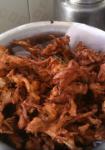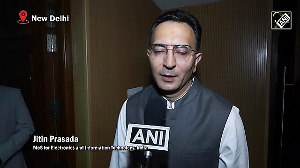After all the publicity and discussion on the Kelkar report before the Budget it was but natural that the finance minister would pay handsome tribute to the report. But in the ultimate analysis, he has not really followed the fundamental approach recommended by Vijay Kelkar.
Like most other finance ministers he has in this Budget followed the shining path of giving exemptions to industries ostensibly to promote them. We already have a number of exemptions, apparently promotional and location-based.
They have made the customs and excise tariff highly complicated, what with long conditions and longer lists attached to them. Kelkar's basic suggestion was to simplify the tariff by abolishing exemptions, conditions, bonds, lists and all that.
One of the very important suggestions was to amend the existing law prohibiting Unjust Enrichment. This has also not been accepted. Other issues we shall discuss under different heads as we proceed.
CustomsThe Budget claims to have reduced the peak rate of customs duty from 30 per cent to 25 per cent. It is not the peak rate that is 182 per cent but only the median, that is to say, which applies to most of the items.
This leaves us with all the high rates for agricultural goods, dairy products and alcoholic products intact such as 30 per cent, 35 per cent, 40 per cent, 50 per cent, 100 per cent and so on. The number of rates still remains at nearly 22 as before.
There has been no attempt to group these rates to certain bands such as 50 per cent, 100 per cent and 150 per cent. I do not see any reason why such rates as 105 per cent and 166 per cent should continue.
The scope of advance ruling has been extended in some respects but only in relation to non-residents and non-resident Indians and not in relation to ordinary Indian importers and manufacturers.
That would remove the uncertainties of the classifications of the goods for Indian manufacturers. But the same has not been accepted. It was also suggested by industry and trade that the controversies about valuation could be largely resolved if the data regarding the goods imported and the values thereof are floated in a website by the customs department for the perusal of all importers. This suggestion has also not been accepted.
While it has been said in general that clearance of goods will be through the green channel, without any specific assertion by the finance minister that physical examination would be waived except when there is information against them, this is likely to remain more in theory than in practice.
Central excise
The rate structure earlier was 4 per cent, 8 per cent, 16 per cent and 32 per cent. This has now been replaced by 8 per cent, 16 per cent and 24 per cent apart from higher rates for pan masala, petroleum products, tobacco products, textiles and specific rated products.
The significance is that the duty has been reduced from 32 per cent to 24 per cent in the case of tyres, aerated drinks, polyester filament yarns, air conditioners and motor cars. And the duty of 4 per cent without Cenvat has been abolished.
Some of the goods under this item have been fully exempted and some have been pushed up to 8 per cent with Cenvat credit. In the process, full exemption has been given to items which do not merit such exemption at all. They are mosaic tiles, recorded audio CD, adhesive tapes, articles of mica etc. These could have been made to attract 8 per cent with Cenvat credit. This is one instance where the populist tendency has got the better of the FM.
With regard to simplification to Cenvat, three useful suggestions were made by the Partho Shome Committee and the Kelkar Committee:
(a) The distinction hitherto being made between input and capital goods in regard to input tax credit should be abolished;
(b) The concept of manufacture should be replaced by use in regard to input tax credit;
(c) Giving of input credit to capital goods over a period of two years should be abolished and it should be given in one year.
All these three good suggestions have not been accepted.
Assessment made on the basis of maximum retail price has been extended to few more items namely, pesticides and chewing tobacco. The system of fixed abatement given on the declared retail price actually results in a fixed "tariff value".
This becomes a specific rate of duty and not an ad valorem duty. It introduces rigidity and does not allow the benefit of inflation to be reaped. The whole concept needs review.
VATThe Budget announces that VAT will be introduced on April 1 this year. It also says that if there is a loss incurred by the states there will be compensation to the extent of 100 per cent in the first year, 75 per cent in the second year and 50 per cent in the third year. CST also will be reduced from 4 per cent to 2 per cent but it does not say whether it will be reduced to 1 per cent and 0 per cent in next two years.
The Budget also says that the additional excise duty on sugar, textiles and tobacco will continue and at the same time the states will be able to levy VAT not exceeding 4 per cent on them.
For this purpose, the AED Act is being amended. The situation is definitely anomalous and there could be a constitutional wrangle. The AED is in lieu of sales tax. VAT is also in lieu of sales tax. So industry feels that there cannot be two taxes, one by the Union and the other by the states, in lieu of one tax. It is likely to lead to litigation.
Service taxThe rate of tax has been increased from 5 per cent to 8 per cent. This is on revenue considerations. Ten new services have been brought under the purview of service tax. This is the correct approach. This is far better than the suggestion of Kelkar Committee of a comprehensive service tax.
It is also very good that the facility of credit of service tax on input services has been extended across all services even if the input and the final services fall under different categories. This is the way leading to an integrated goods and services tax (called GST in Canada).
The author is a former Central Board of Excise and Customs member.





